第86章 APPENDIX.(2)
XV. Those things, which beget harmony, are such as are attributable to justice, equity, and honourable living. For men brook ill not only what is unjust or iniquitous, but also what is reckoned disgraceful, or that a man should slight the received customs of their society. For winning love those qualities are especially necessary which have regard to religion and piety (cf. IV:xxxvii.Notes.i., &.ii.; IV:xlvi.Note; and IV:lxxiii.Note).
XVI. Further, harmony is often the result of fear: but such harmony is insecure. Further, fear arises from infirmity of spirit and moreover belongs not to the exercise of reason: the same is true of compassion, though this latter seems to bear a certain resemblance to piety.
XVII. Men are also gained over by liberality, especially such as have not the means to buy what is necessary to sustain life. However, to give aid to every poor man is far beyond the power and the advantage of any private person. For the riches of any private person are wholly inadequate to meet such a call. Again, an individual man's resources of character are too limited for him to be able to make all men his friends. Hence providing for the poor is a duty, which falls on the State as a whole, and has regard only to the general advantage.
XVIII. In accepting favours, and in returning gratitude our duty must be wholly different (cf. IV:lxx.Note; IV:lxxi. Note).
XIX. Again, meretricious love, that is, the lust of generation arising from bodily beauty, and generally every sort of love, which owns anything save freedom of soul as its cause, readily passes into hate; unless indeed, what is worse, it is a species of madness; and then it promotes discord rather than harmony (cf. III:xxxi.Coroll.).
XX. As concerning marriage, it is certain that this is in harmony with reason, if the desire for physical union be not engendered solely by bodily beauty, but also by the desire to beget children and to train them up wisely; and moreover, if the love of both, to wit, of the man and of the woman, is not caused by bodily beauty only, but also by freedom of soul.
XXI. Furthermore, flattery begets harmony; but only by means of the vile offence of slavishness or treachery. None are more readily taken with flattery than the proud, who wish to be first, but are not.
XXII. There is in abasement a spurious appearance of piety and religion. Although abasement is the opposite to pride, yet is he that abases himself most akin to the proud (IV:lvii.Note).
XXIII. Shame also brings about harmony, but only in such matters as cannot be hid. Further, as shame is a species of pain, it does not concern the exercise of reason.
XXIV. The remaining emotions of pain towards men are directly opposed to justice, equity, honour, piety, and religion; and, although indignation seems to bear a certain resemblance to equity, yet is life but lawless, where every man may pass judgment on another's deeds, and vindicate his own or other men's rights.
XXV. Correctness of conduct (modestia), that is, the desire of pleasing men which is determined by reason, is attributable to piety (as we said in IV:xxxvii.Note.i.). But, if it spring from emotion, it is ambition, or the desire whereby, men, under the false cloak of piety, generally stir up discords and seditions. For he who desires to aid his fellows. either in word or in deed, so that they may together enjoy the highest good, he, I say, will before all things strive to, win them over with love: not to draw them into admiration, so that a system may be called after his name, nor to give any cause for envy. Further, in his conversation he will shrink from talking of men's faults, and will be careful to speak but sparingly of human infirmity: but he will dwell at length on human virtue or power, and the way whereby it may be perfected.
Thus will men be stirred not by fear, nor by aversion, but only by the emotion of joy, to endeavour, so far as in them lies, to live in obedience to reason.
XXVI. Besides men, we know of no particular thing in nature in whose mind we may rejoice, and whom we can associate with ourselves in friendship or any sort of fellowship; therefore, whatsoever there be in nature besides man, a regard for our advantage does not call on us to preserve, but to preserve or destroy according to its various capabilities, and to adapt to our use as best we may.